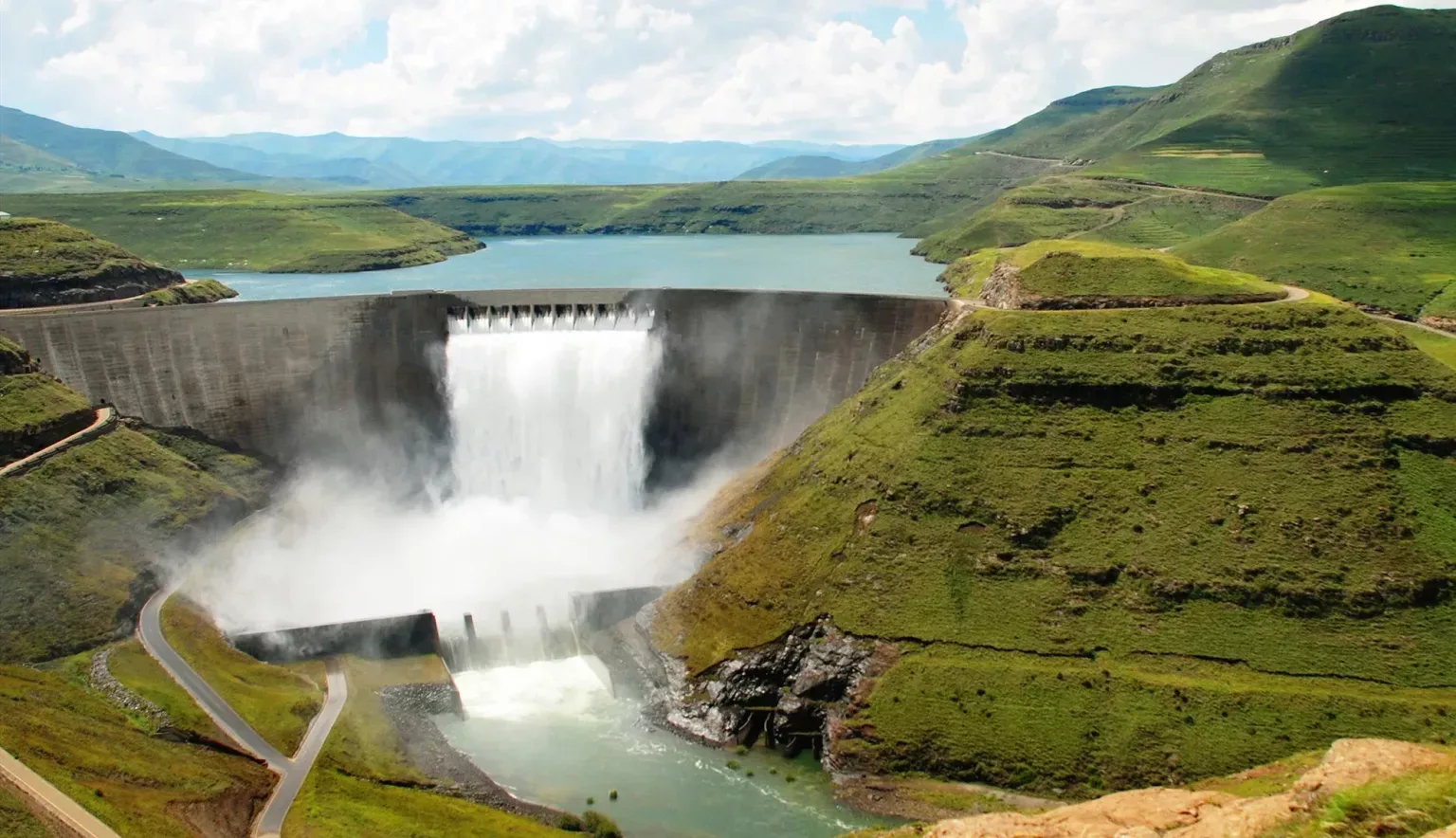In line with its socio-economic development, Lesotho is catalysing a conducive business environment. We discover more about industry in the country.
INTRODUCTION
The business community in Lesotho, and around the world, has been affected by socio-economic and political issues in recent times, not least due to the COVID-19 pandemic.
Business leaders, who understandably remain busy with the day-to-day running of their respective organisations, tend to find it difficult to constantly engage in public policy and advocate for legislation that contributes to growth and prosperity in their country.
Working in a conducive business environment is one of the prerequisites and key drivers of economic growth, and the small, mountainous and landlocked nation of Lesotho is no exception.
Thankfully, as a member of the Southern African Customs Union (SACU), Lesotho benefits from the conducive nature of the world’s oldest customs union. SACU eliminates tariffs on the trade of goods between Lesotho and the four other member countries, namely Botswana, Namibia, South Africa, and Eswatini.
For just over a century, SACU has played an important role in promoting regional integration and the economic performance of all member states. Members such as Lesotho are mindful of the different levels of economic development of each state, and the need for their integration into the regional and global economy. Recognising the challenges presented by regional and global developments, SACU can be a vehicle for deeper integration both within the union itself and the wider region of Southern Africa.
Moreover, the African Continental Free Trade Area (AfCFTA) recently commenced trade as of January 2021. This free trade area is the largest in the world in terms of the number of participating countries, comprising all but one of the 55 African Union nations, including Lesotho.
As a member of AfCFTA, Lesotho is helping to accelerate intra-African trade and boost Africa’s trading position in the global market, by strengthening the continent’s common voice and policy space in global trade negotiations. AfCFTA aims to boost trade by providing a comprehensive and mutually beneficial trade agreement among member states, covering trade in goods, services, investment, intellectual property rights, and competition policy.
Lesotho is also tied into the Common Monetary Area (CMA) of Southern Africa, a longstanding and successful monetary union allied to SACU in which member currencies are valued and exchanged on par with the South African Rand.
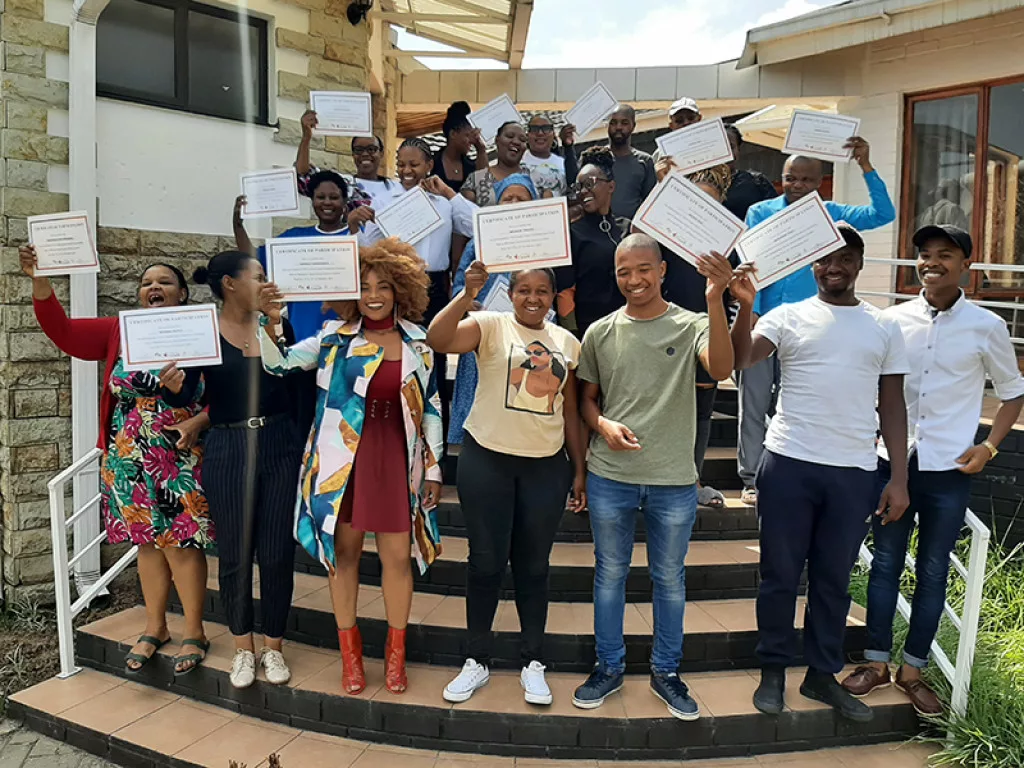
ECONOMIC DEVELOPMENT
With a population of just over two million and nominal gross domestic product (GDP) per capita, The World Bank classifies Lesotho today as a lower-middle-income country. As Lesotho continues to progress from a predominantly subsistence-oriented economy to one that exports manufactured goods and natural resources such as water, a significant portion of the population now benefits from a higher, more secure level of income.
The economy of Lesotho has historically been based primarily on subsistence agriculture, especially livestock. According to the World Food Programme, the food assistance branch of the United Nations, more than 70 percent of the population in rural Lesotho remains engaged in subsistence farming.
Agricultural productivity has been on the decline in Lesotho since the 1990s, however, with unpredictable weather conditions and persistent, recurring droughts necessitating the transition of the country’s industrial landscape. With droughts affecting harvest yields and causing significant loss of livestock, it is clear that Lesotho is highly vulnerable to the impacts of climate change.
Complementing Lesotho’s subsistence economy is a well-developed downstream oil sector and other small-scale industries such as clothing, footwear, textiles and food processing, whilst the likes of manufacturing and mining are now also on the ascendancy in Lesotho.
Economic and industrial growth in the country is expected to be boosted further in the medium-term by a number of construction-related projects, including the Lesotho Highlands Water Project (LHWP), whilst it is anticipated that Lesotho’s water and electricity subsectors will be enhanced by green energy endeavours.
LHWP is a multi-phased transnational project that first commenced in the 1990s, consisting of a system of dams and tunnels to store and transfer water from the catchment of the Orange River in the highlands of Lesotho to the industrial heartland of South Africa, as well as a hydropower plant at Muela.
Water is the only major natural resource in Lesotho, yet domestically the country consumes less than six percent of its supply. It therefore made sense for Lesotho to commercialise the excess water it was not consuming, and South Africa represented the ideal customer.
Similar to Lesotho, South Africa is an arid country troubled by periodic droughts, unevenly distributed rainfall and unequal water availability, with a considerable portion of the population still without access to clean, safe water and adequate sanitation.
LHWP generated growth in the Lesotho economy from the very outset. The country registered an impressive economic performance at the time as a result of the initial construction works associated with LHWP, with a real GDP growth rate that ranked Lesotho amongst the top 10 performers in Africa.
Phase two of LHWP is currently underway, implementing a water delivery system to augment the delivery of water to South Africa and a hydropower generation system, which will increase the current electricity generation capacity in Lesotho.
PRIVATE SECTOR DEVELOPMENT IN LESOTHO
The recovery of the tertiary sector in Lesotho from COVID-19, meanwhile, is set to be accelerated by lessened restrictions and increased travel, as the world learns to live with the disease and gets back to normal.
However, COVID-19 has exacerbated Lesotho’s otherwise weak macroeconomic performance and subsequently limited its fiscal capacity to respond to such shocks. For example, more than 60 percent of households in the country rely on remittances received from South Africa every month, but these have dropped significantly as a result of the pandemic.
In order to attain its macroeconomic objectives, the Lesotho government strategically places a high priority on parastatal privatisation and private sector development as a primary source of growth and employment creation.
Through its National Strategic Development Plan (NSDP), the government of Lesotho recognises the vital role of domestic and foreign investment, and the development of the private sector to drive shared economic growth.
Foreign direct investment is actively encouraged in all areas of Lesotho’s economy, with the agriculture, manufacturing, technology/innovation, and tourism/creative industries in particular earmarked for their potential to promote growth through the private sector.
Lesotho has a free-market economy with a relatively open business climate and capital markets, and as a member of both SACU and the Southern African Development Community (SADC), foreign businesses are able to use Lesotho as a gateway to larger regional markets.
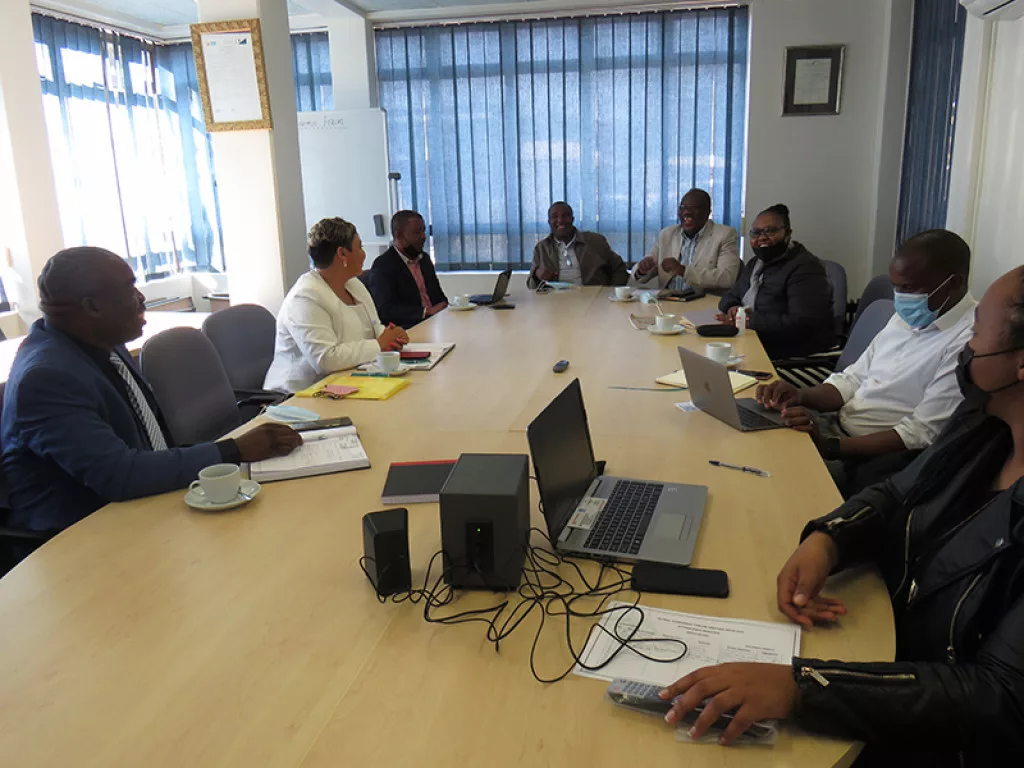
Q&A WITH FAKO HAKANE, CEO, LESOTHO CHAMBER OF COMMERCE AND INDUSTRY (LCCI)
Playing a critical role in the development and implementation of policies that affect the business community, the Lesotho Chamber of Commerce and Industry is the country’s ‘Voice of Business’. Executive Secretary and CEO, Fako Hakane, tells us more
Can you talk me through the origins of LCCI, how it came about, and its initial vision?
Fako Hakane, Executive Secretary and CEO (FH): The Lesotho Chamber of Commerce and Industry (LCCI) is a business membership organisation that was established in 1976 under the Societal Act of 1966. As LCCI first came about to address the need for organised business in Lesotho, it is a non-partisan business association that supports, protects and advocates the interests of its members operating legal business in Lesotho and beyond. LCCI has three tiers of membership (Associate, Affiliate, and Ordinary) that pay annual subscriptions.
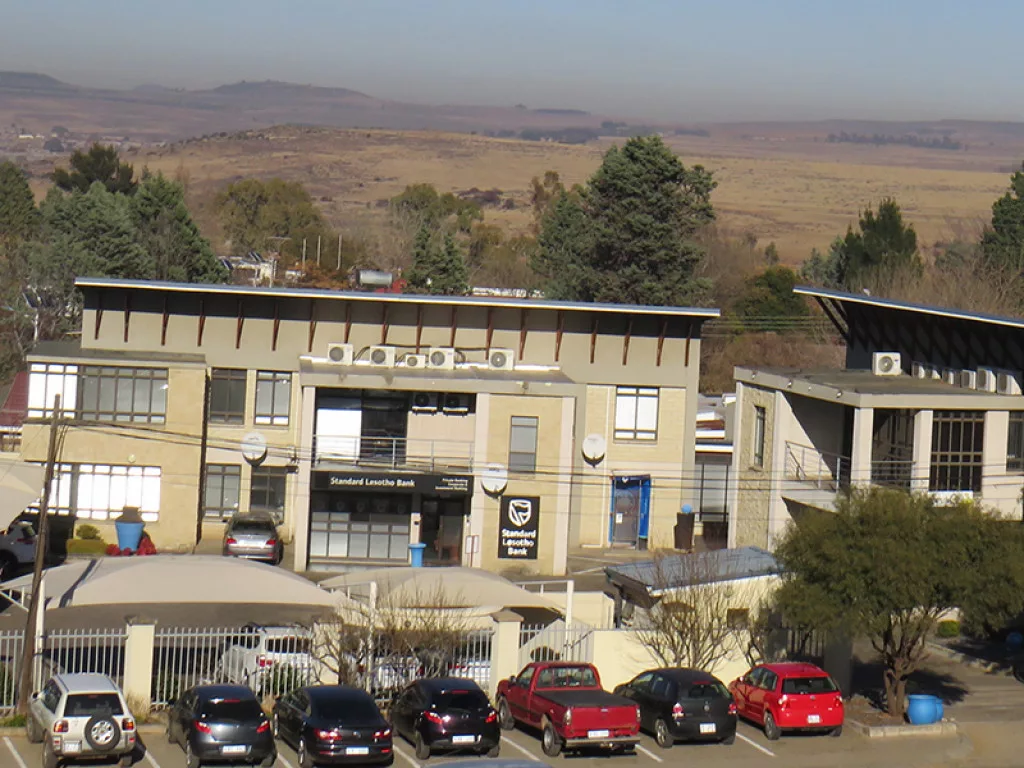
Since inception, how has LCCI developed and progressed in terms of its key objectives and the messages it tries to get across?
FH: Since inception, we have managed to develop business activities when it comes to trade, goods and services, promote internal and external investment, as well as mobilise resources to promote and support export oriented industrial development. LCCI trains, develops and promotes businesses using local facilities, and instils high standards of customer service amongst the chamber’s membership. We also undertake an educational role to promote the strive for excellence in all commercial undertakings to LCCI members, customers and communities. Finally, LCCI keeps members informed with opportunities, matters affecting trade, commerce, industry, retail, tourism, and so on.
What do you find most exciting about working in the industrial sector of Lesotho and, equally, what are its biggest challenges?
FH: Working in Lesotho’s industrial sector can be frustrating; however, it poses a challenge that needs serious attention. Much more groundwork has to be put into making the industrial sector tick. LCCI’s biggest challenge is our inadequate resources, as our revenue streams stem from annual subscriptions.
How has LCCI navigated the COVID-19 pandemic?
FH: The COVID-19 pandemic has affected all spheres of our lives. We could not hold or host revenue generating activities such as gala dinners or fun walks to name but a few. In the midst of the pandemic, we established a solidarity fund that members have contributed to, and we were able to assist with providing PPE to vulnerable communities. Businesses that were seriously affected by the shutdown were also assisted through LCCI, the government’s COVID-19 relief fund, as well as other organisations.

“LCCI in five years will be a force to reckon with because we are finally being recognised by the public sector”
Fako Hakane, Executive Secretary and CEO, LCCI
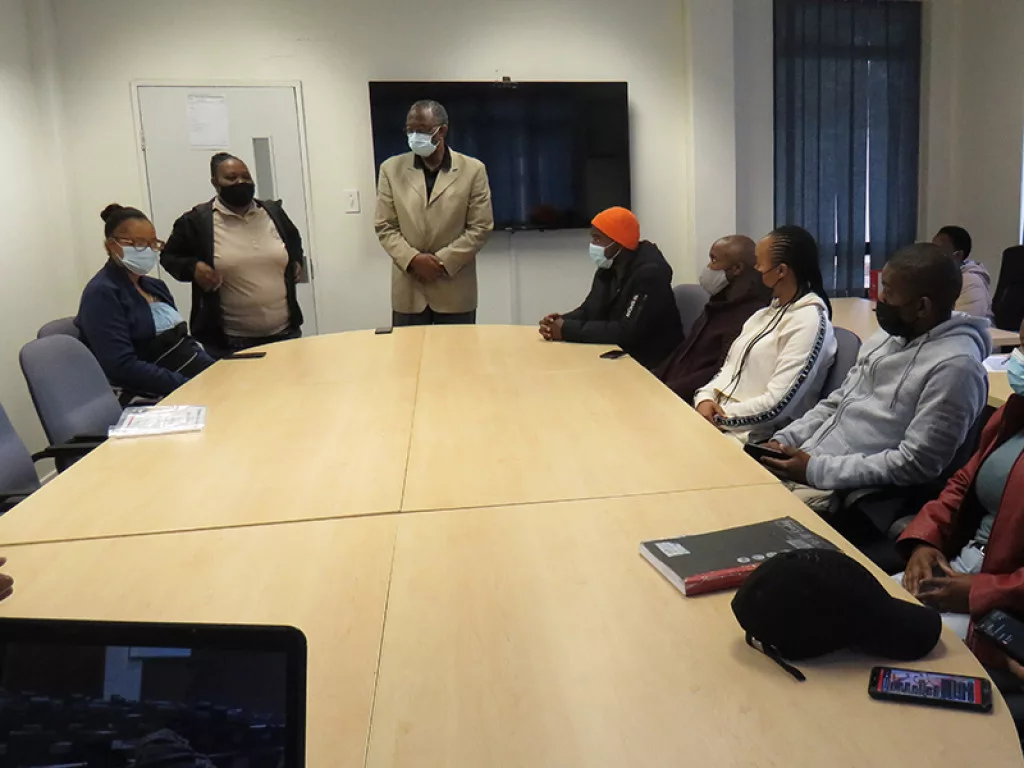
What trends are currently transforming the sector and how are you responding to them?
FH: Lesotho is one of the countries that has ratified the African Continental Free Trade Agreement to create the African Continental Free Trade Area (AfCFTA), which reduces tariffs among member countries. LCCI will also help to address barriers that delay the flow of goods and services, and this will in turn encourage investment.
Has LCCI got any projects in the pipeline that you wish to highlight?
FH: We were running the AfDB Fund for African Private Sector Assistance project (FAPA), which has just come to an end. The objective of FAPA was the capacitation of business associations, which was well-executed, and we have some tangible proof of the success of the project.
How do you see the chamber developing over the next five years?
FH: LCCI in five years will be a force to reckon with because we are finally being recognised by the public sector, which involves us in some policy making decisions. The International Chamber of Commerce also affords us the recognition we desire and assists in training programmes and all of its other activities.



